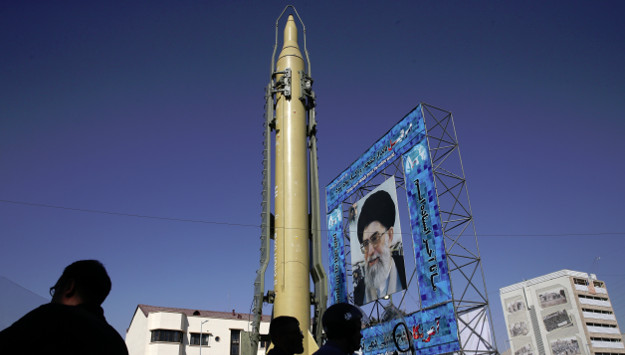Iran’s Foreign Ministry rejected media reports on Iran’s willingness to negotiate its missile program with the United States. Baharm Ghassemi, the ministry’s spokesman, said the Iranian government vehemently refutes claims made in a Reuters report that Tehran was ready to negotiate parts of its controversial missile activities. “The Islamic Republic of Iran – in its public statements and diplomatic meetings with foreign authorities as well as interviews and meetings by Foreign Minister [Javad Zarif] during his trip to New York – has repeatedly emphasized that its defense programs are non-negotiable and does not consider it [missile program] inconsistent with the [U.N.] Resolution 2231,” Ghassemi said. “Iran considers missile defense programs as its legitimate right and will certainly continue it within the framework of its defensive, conventional and determined plans and strategies,” he added.
Comment: The reaction form Iran’s Foreign Ministry came within hours after Reuters reported that Tehran has suggested to the United States and five other signatories of the Iran nuclear agreement that it may be open to talks over its ballistic missile program. Quoting unnamed Iranian and Western officials, the report claimed that Iran could discuss some “dimensions” of the missile program in order to defuse escalating tension with the Trump administration.
Iran’s launch of several ballistic missiles this year has been one reason the Trump administration has accused Tehran of violating the “spirit” of the nuclear agreement and has imposed news sanctions on Iranian entities involved in the program.
There appears to be a consensus among political and military leaders in Tehran to continue and further advance Iran’s missile technology at any cost. At the first press conference since winning reelection, President Hassan Rouhani said the Islamic Republic would continue its ballistic missile program despite Washington’s concerns. “American authorities should know that whenever we need to test a missile for technical reasons, we will carry it out. And we will not wait for them or their permission,” he said defiantly after U.S. and Saudi leaders criticized Tehran’s regional policies at the Riyadh summit. Iran’s Supreme Leader Ali Khamenei has also stressed that his country would further enhance its missile power “We have missiles and they are very precise. They can hit targets with precision from thousands of kilometers away. We will forcefully preserve and enhance this capability.”
While the nuclear agreement does not address Iran’s missile program, the subsequent U.N. Security Council Resolution 2231 “calls upon Iran not to undertake any activity related to ballistic missiles designed to be capable of delivering nuclear weapons, including launches using such ballistic missile technology.” Iranian leaders argue that the country’s missiles are not designed to carry nuclear warheads, but U.S. officials say some of the missiles Iran has tested after the 2015 nuclear deal have been "inherently capable of delivering nuclear weapons" and are "in defiance of" the U.N. resolution.



